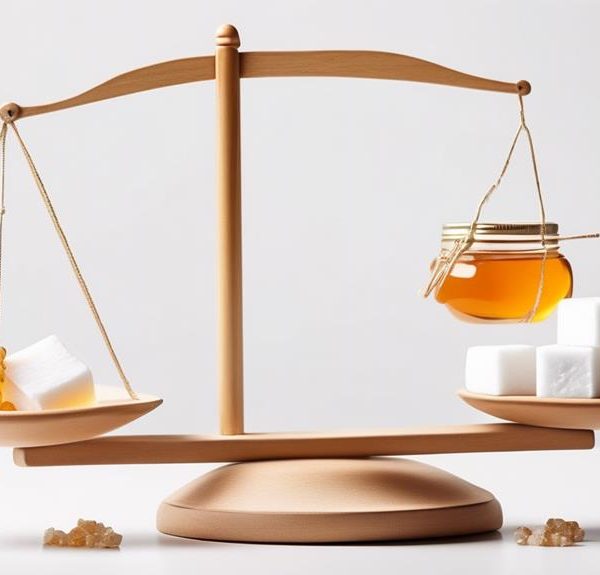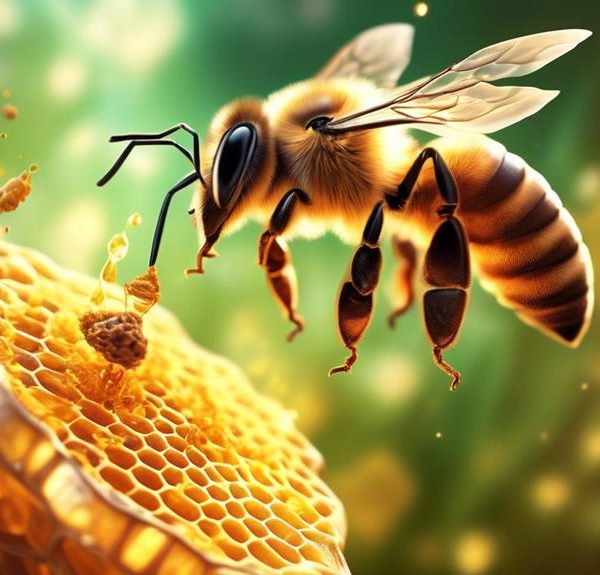Intrigued about swapping honey for maple syrup in your recipes? Discover the truth behind their interchangeability in our detailed guide.
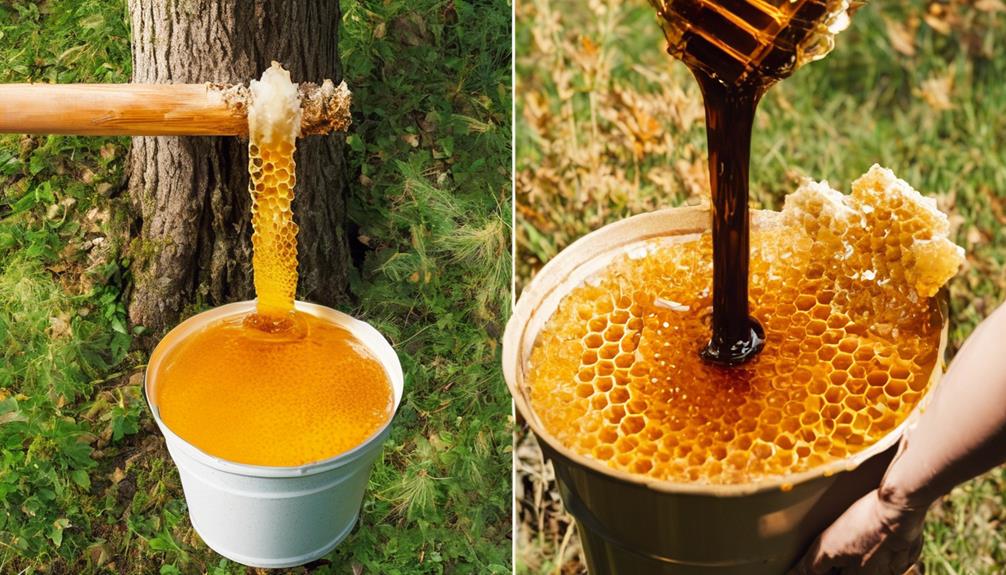
Are Honey and Maple Syrup Interchangeable
Have you ever found yourself in a conundrum, wondering if honey can be used as a substitute for maple syrup or vice versa? You're not alone. Many people question whether these two natural sweeteners can be swapped in recipes or dietary plans.
Both honey and maple syrup have their unique characteristics, nutritional profiles, and flavors. However, the question remains: are they really interchangeable? We're about to explore this in detail, so stick around to find out.
Key Takeaways
- Honey and maple syrup have unique properties in terms of their sources, nutritional content, flavors, and culinary applications.
- While honey is higher in fructose and glucose, maple syrup contains more sucrose and essential minerals like calcium, potassium, and zinc.
- Honey boasts antibacterial, antiviral, and anti-inflammatory properties, whereas maple syrup has a lower glycemic index, making it beneficial for managing sugar intake.
- Experimenting with both honey and maple syrup in cooking can lead to interesting flavor enhancements and unique culinary creations.
Understanding Honey's Unique Properties
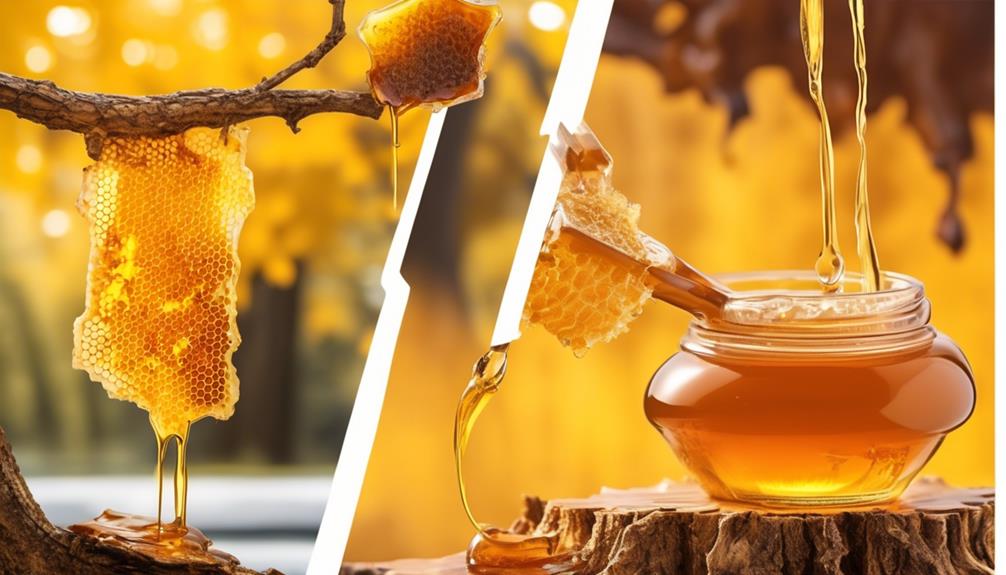
Diving into the unique properties of honey, you'll find it's not just a sweetener, but also a complex natural substance with distinct characteristics that set it apart. Honey is a viscous liquid produced by bees from the nectar of flowers. It's primarily composed of fructose and glucose, with traces of vitamins, minerals, and antioxidants.
Unlike refined sugars, honey possesses varying flavors and colors, depending on the type of flower nectar collected by the bees. Darker honey often contains more antioxidants than lighter ones. It's also hygroscopic, meaning it absorbs moisture from the air, which contributes to its long shelf life.
Honey has antimicrobial properties, thanks to the enzyme bees add to nectar, which produces hydrogen peroxide, a known antimicrobial agent. This gives honey its wound-healing capabilities and makes it a natural preservative in food applications.
Moreover, honey's acidity, with a pH typically between 3.2 and 4.5, inhibits the growth of bacteria, further enhancing its preservative qualities.
In baking, honey adds moisture and acidity, which can tenderize the dough and give a distinct flavor to the final product. However, its sweetness level is higher than sugar, which requires adjustments in recipes.
Exploring Maple Syrup's Characteristics
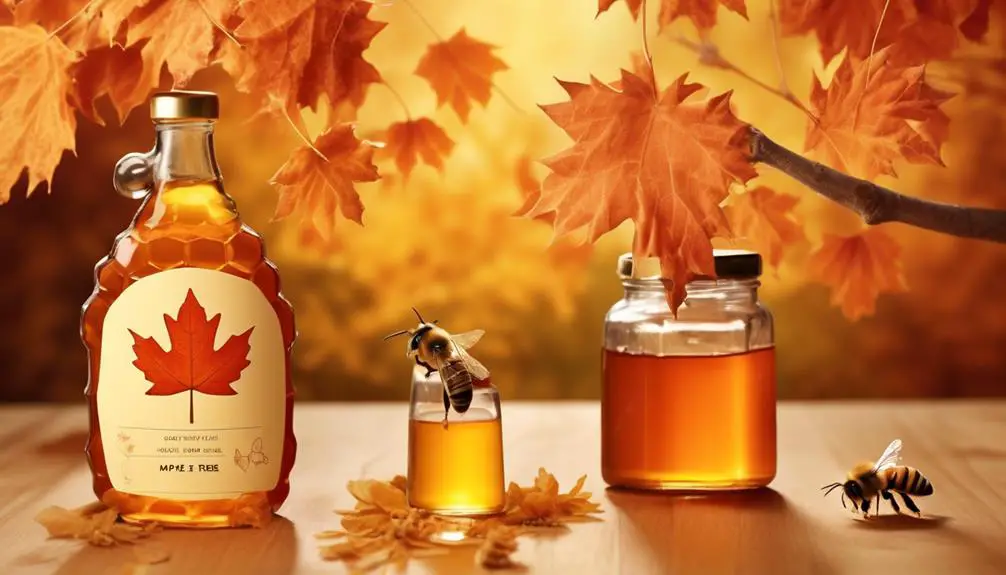
Shifting our focus to maple syrup, it's important to note that this natural sweetener, derived from the sap of maple trees, carries its own unique set of characteristics worth exploring.
First off, maple syrup's flavor is more complex than that of honey. It's got a distinctive, robust flavor that's often described as woodsy or smoky. The taste can vary depending on the type of maple tree it comes from and the time of harvest. The color, too, can range from golden to dark brown, with darker syrups generally having a stronger flavor.
Nutritionally, it's not too dissimilar from honey. It's high in antioxidants and contains numerous minerals like calcium, iron, magnesium, and zinc. However, it's got a lower glycemic index than honey, meaning it raises your blood sugar more slowly. This makes it a potentially better choice for those watching their sugar intake.
Contrary to honey, maple syrup isn't raw. It's boiled to concentrate its sugars and kill bacteria, which means it's generally safe for those with compromised immune systems.
Lastly, its consistency is thinner than honey's, making it a better choice for drizzling on pancakes or waffles. Each of these characteristics make maple syrup a unique sweetening alternative.
Nutritional Comparison: Honey Vs Maple Syrup
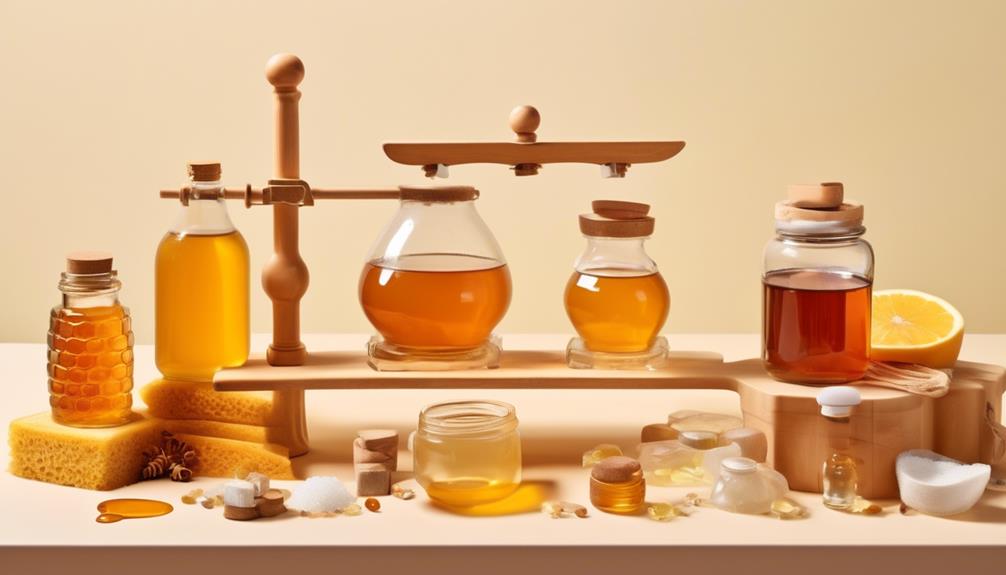
Now that we've explored the unique characteristics of maple syrup, let's compare its nutritional value with honey to understand which might be the healthier choice for your diet.
Firstly, both honey and maple syrup are rich in sugars, but they differ in their sugar composition. Honey is primarily made up of fructose and glucose, while maple syrup contains a higher proportion of sucrose. This means that honey can have a slightly higher glycemic index, which can lead to quicker spikes in blood sugar levels.
When it comes to vitamins and minerals, maple syrup takes the lead. It's packed with essential minerals such as calcium, potassium, magnesium, and zinc. Not to mention, it's also a good source of antioxidants. Honey, on the other hand, does contain vitamins and minerals, but in smaller amounts compared to maple syrup.
However, don't discount honey just yet. It has potent antibacterial, antiviral, and anti-inflammatory properties, thanks to its unique enzymes and organic acids.
It's clear that both honey and maple syrup have their own set of benefits and potential drawbacks. The choice between the two will largely depend on your individual dietary needs and preferences.
Using Honey and Maple Syrup in Cooking
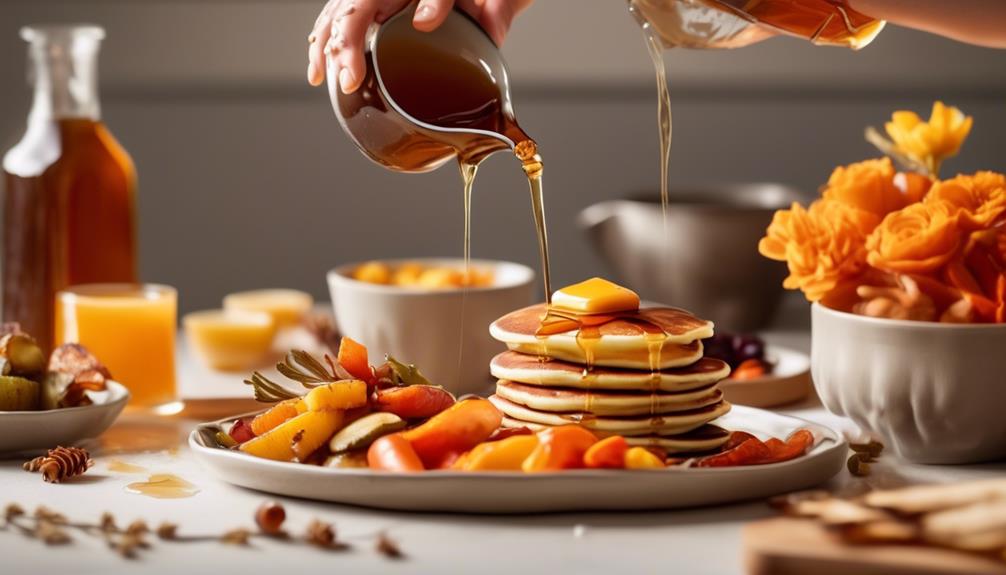
When it comes to cooking, both honey and maple syrup can be used interchangeably in many dishes to add a hint of sweetness, yet each imparts its own unique flavor profile that can enhance your culinary creations. Honey, with its floral tones and rich, velvety texture, can be used to glaze meats, dress salads, or sweeten baked goods. Its distinct flavors can add depth to a dish, making it a versatile ingredient in your kitchen.
Alternatively, maple syrup, with its earthy, caramel-like taste, isn't just for pancakes. It can complement savory dishes such as roasted vegetables or bacon, and it's an excellent choice for marinades and barbecue sauces. In baking, you can substitute maple syrup for honey using a one-to-one ratio, but you might want to reduce other liquids in the recipe by about a quarter cup to balance the moisture.
Scientifically, both honey and maple syrup have similar sugar compositions, which means they'll behave similarly in recipes. However, remember that using one over the other can dramatically change the flavor of your dish. So, experiment, taste, adjust, and discover your own sweet spot in cooking with these natural sweeteners.
Taste Test: Honey and Maple Syrup
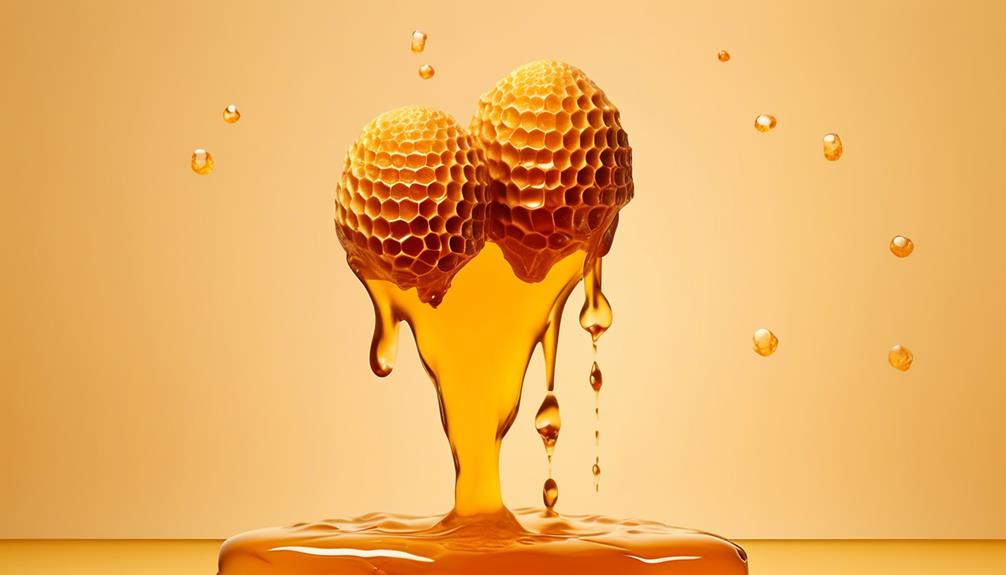
If you've ever wondered about the distinct tastes of honey and maple syrup, conducting your own taste test can be an enlightening experience, allowing you to appreciate the complexities of these natural sweeteners. Both honey and maple syrup are rich in flavor, but they each have their own unique characteristics that set them apart.
Honey's taste can vary significantly, influenced by the types of flowers the bees have been foraging. It can range from light and fruity to dark and robust, with undertones of floral, nutty, or even spicy flavors.
On the other hand, maple syrup has a consistent and distinctive taste. It's generally sweet, with a hint of caramel or toffee and a slight smoky, woody flavor, a testament to its tree sap origin.
When tasting, pay attention to the texture as well. Honey can be thick and viscous, while maple syrup is often thinner and more pourable. This can influence how they're perceived on the palate.
Conclusion
In conclusion, while honey and maple syrup share some similarities, they're not entirely interchangeable due to their unique properties and distinctive flavors.
Nutritional profiles differ too, with honey providing more calories but also more minerals. In cooking, both can sweeten your dishes, but remember the taste will vary.
So, it's your decision which to use, depending on your recipe and health preference. Just remember, moderation is key with these natural sweeteners.

